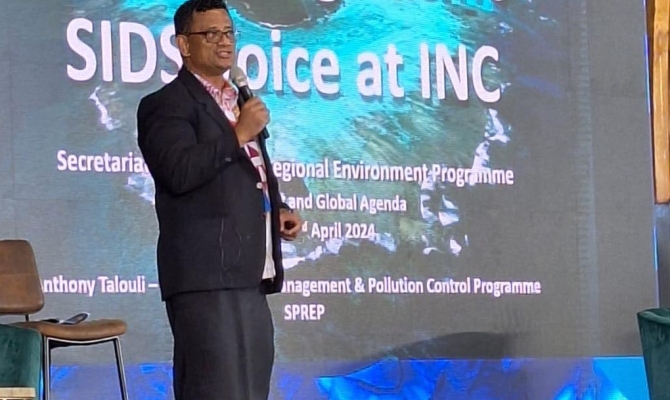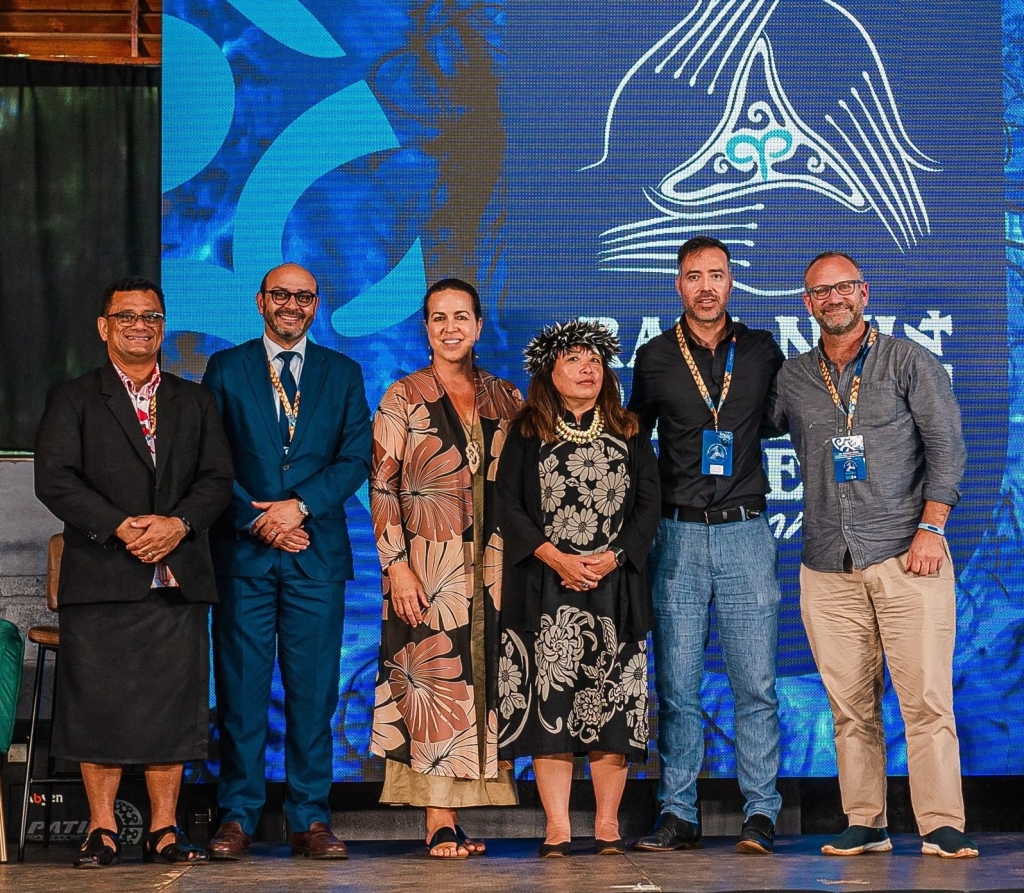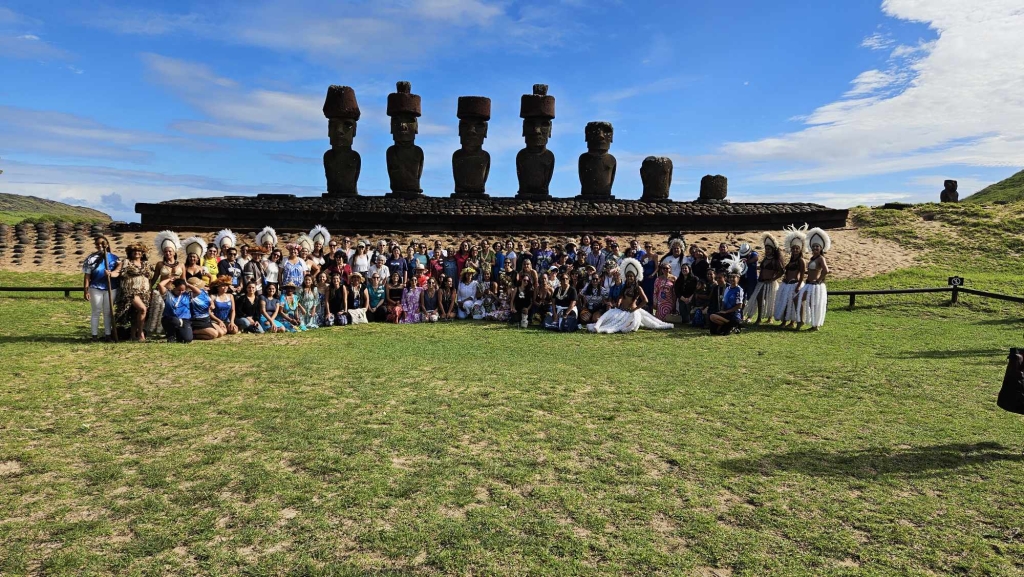
9 April 2024, Easter Island, Chile - The Secretariat of the Pacific Regional Environment Programme (SPREP) continues to work with the Governments of Australia and New Zealand, and key partners, to build the capacity of Pacific negotiators to amplify the one Pacific Voice at the ongoing Intergovernmental Negotiating Committee (INC) to develop an international legally binding instrument on plastic pollution, including in the marine environment.
The support provided to Pacific countries is a critical part of the collective work to address the impact of waste and pollution on sustainable development to achieve the vision of a Cleaner Pacific, delegates attending the a Rapa Nui Pacific Leaders’ Summit on Easter Island, Chile, from 3-5 April 2024, were told.
Speaking during the "Global Context of Negotiations and Environmental Agenda" panel discussion, SPREP’s Director of Waste Management and Pollution Control (WMPC), Mr Anthony Talouli, highlighted why the ongoing INC process on plastics treaty matters, the progress made thus far and what Pacific countries expect at the 4th round of negotiations scheduled from 23-29 April 2024 at the Shaw Center in Ottawa, Canada.
“Plastic pollution has already impacted all of us at different levels. In the Pacific, despite contributing less than 1.3 per cent to global plastic pollution, our Pacific populations are disproportionately affected by the plastic pollution crisis threatening livelihoods, health and economies,” said Mr Talouli. “For us, the ongoing INC negotiations is about our survival and what our Pacific countries want from the INC negotiations is an ambitious treaty that covers the full lifecycle of plastic pollution that is applicable to all Small Island Developing States (SIDS).”

The "Global Context of Negotiations and Environmental Agenda" panel also featured Gonzalo Muñoz, first COP High Level Climate Action Champion, Mary Pérez Hattory, Director of the Pacific Islands Development Program, Aulani Whilhem, Senior Vice President for Oceans at Conservation International and Luis Vayas Valdivieso, Chair of the Intergovernmental Negotiating Committee (INC) to develop an International Legal Binding Instrument on plastic pollution.
The panel provided a comprehensive view of how global negotiations and agreements, influence the design of effective strategies to control marine pollution, as well as to highlight the crucial role of these actions in achieving Global Sustainable Development Goals.
Ahead of INC-4 in Canada, a four-day Pacific Regional Preparatory Workshop was held at the Auckland Office of the New Zealand Ministry of Foreign Affairs and Trade where Pacific negotiators developed a common understanding of the key issues.
“As we look to INC-4, the priorities for PSIDS are many however we see the main elements would be in five core measures: primary plastic polymers, chemicals and polymers of concern, problematic and avoidable plastic products, trade, and design,” Mr Talouli said.
“These will be supported by information sharing, non-plastic substitutes, capacity exchange, reporting, transparency, tracking, monitoring and labelling, emissions and releases as well as waste management.
“I know the road ahead is not going to be easy but we are all unified in our common goal to ensure our people are safeguarded and protected from the threat of plastic pollution.”

The Rapa Nui Pacific Leaders’ Summit 2024 was opened by the Mayor of Rapa Nui, Mr Pedro Pablo Edmunds Paoa. It also featured the Director and Regional Representative of the United Nations, Mr Juan Bello and the United Nations Secretary-General's Special Envoy for the Oceans, Mr Peter Thomson.
It ended with the Rapa Nui Summit Declaration highlighting the delegates’ commitment to address plastic and microplastic pollution, as well as to strengthen ocean protection in the region, by generating concrete commitments and coordinated actions for a more sustainable future.